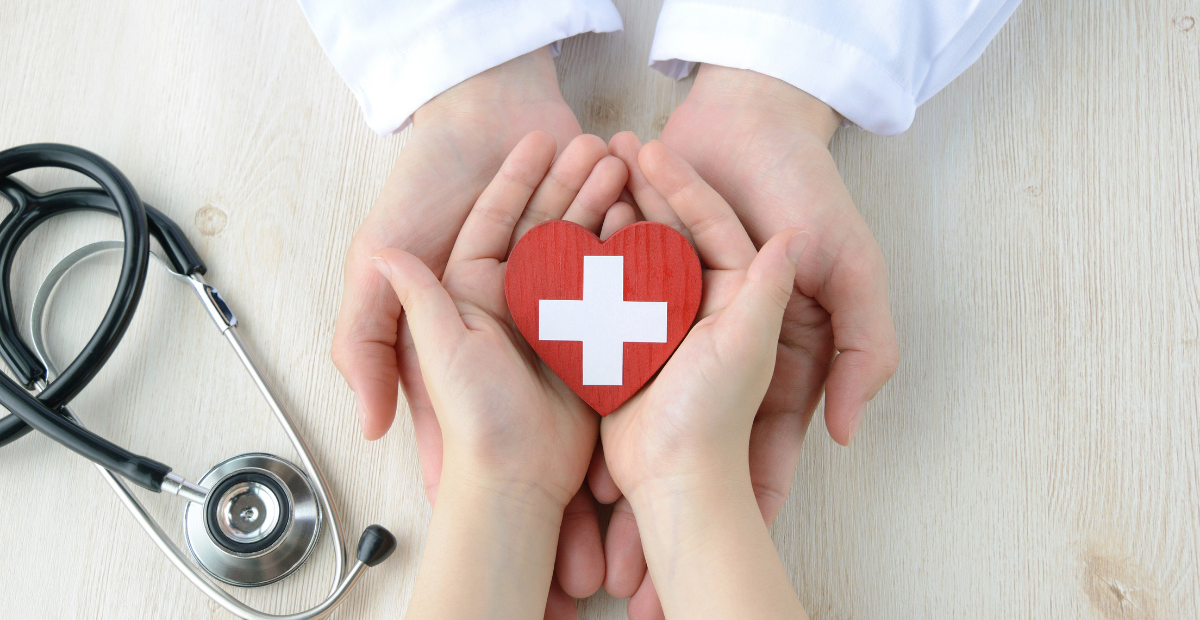What is an Alcohol Allergy?
An alcohol allergy is when your body reacts to alcohol as if it’s a harmful intruder and makes antibodies that try to fight it off. This causes an allergic reaction. Alcohol allergies are rare, but if you do have one, it doesn’t take much to trigger a reaction. Two teaspoons of wine or a mouthful of beer may be enough. [1]
The immune system usually produces antibodies to fight harmful substances in the body. However, in people with an alcohol allergy, the system mistakenly produces antibodies to attack alcohol following exposure to the substance, triggering various symptoms. Mixing prescription drugs with alcohol may also cause these allergic reactions. Giving up alcohol is the best treatment to prevent an alcohol allergy.
What Causes an Alcohol Allergy?
True alcohol allergy is rare, but the reactions can be severe. What most people believe to be alcohol allergy is actually alcohol intolerance. Some people are also allergic to other components of alcoholic drinks. For example, potential allergens in alcoholic drinks include:
- Wheat
- Barley
- Rye
- Hops
- Yeast
- Grapes
People often call alcohol intolerance an alcohol allergy and vice versa. People who have a true alcohol allergy should avoid drinking alcohol entirely. [2]

Alcohol Allergy vs Intolerance
If you have an alcohol allergy, your immune system over-reacts to alcohol. If you have alcohol intolerance, your digestive system doesn’t process alcohol properly. You might also react to certain alcoholic beverages if you have histamine or sulfites intolerance. In very rare cases, reactions to alcohol may be a sign of Hodgkin’s lymphoma.
Can You Develop an Allergy to Alcohol?
Alcoholic drinks are capable of triggering a wide range of allergic and allergic-like responses, including rhinitis, itching, facial swelling, headache, cough, and asthma. Limited epidemiological data suggests that many individuals are affected and that sensitivities occur to a variety of drinks, including wine, beer, and spirits. In surveys of asthmatics, over 40% reported the triggering of allergic or allergic-like symptoms following alcoholic drink consumption, and 30 – 35% reported worsening of their asthma.
Sensitivity to ethanol itself can play a role in triggering adverse responses, particularly in Asians, which is due mainly to a reduced capacity to metabolize acetaldehyde. In Caucasians, specific non-alcohol components are the main cause of sensitivities to alcoholic drinks. Allergic sensitivities to specific components of beer, spirits, and distilled liquors have been described. Wine is clearly the most commonly reported trigger for adverse responses. Sensitivities to wine appear to be due mainly to pharmacological intolerances to specific components, such as biogenic amines and sulphite additives.
Histamine in wine has been associated with the triggering of a wide spectrum of adverse symptoms, including sneezing, rhinitis, itching, flushing, headache, and asthma. The sulphite additives in wine have been associated with triggering asthmatic responses. Clinical studies have confirmed sensitivities to the sulphites in wine in limited numbers of individuals, but the extent to which the sulphites contribute to wine sensitivity overall is not clear. The etiology of wine-induced asthmatic responses may be complex and may involve several co-factors. [3]
Alcohol Allergy Symptoms
If you have a true alcohol allergy, even small amounts of alcohol can cause symptoms. In some cases, it can even cause anaphylaxis. This is a potentially life-threatening allergic reaction.
Symptoms of an allergic reaction may include:
- Itchy mouth, eyes, or nose
- Hives, eczema, or itchiness on your skin
- Swelling of your face, throat, or other body parts
- Nasal congestion, wheezing, or difficulty breathing
- Abdominal pain, nausea, vomiting, or diarrhea
- Dizziness, light-headedness, or loss of consciousness
You should never ignore the symptoms of an allergic reaction. If left untreated, an allergic reaction can quickly become worse. In rare cases, severe allergic reactions can be fatal. It’s possible to develop an alcohol allergy at any point in your life. Sudden onset of symptoms may also be caused by a newly developed intolerance. In rare cases, pain after drinking alcohol might be a sign that you have Hodgkin’s lymphoma. [4]

Anaphylaxis – Anaphylaxis, also called allergic or anaphylactic shock, is a sudden, severe, and life-threatening allergic reaction that involves the whole body. The reaction is marked by constriction of the airways, leading to difficulty breathing. Swelling of the throat may block the airway in severe cases.
Hodgkin’s lymphoma – Formerly known as Hodgkin’s disease — is a cancer of the lymphatic system, which is part of your immune system. It may affect people of any age but is most common in people between 20 and 40 years old and those over 55. Hodgkin lymphoma is a relatively aggressive cancer and can quickly spread through the body. Despite this, it’s also one of the most easily treated types of cancer. Your recommended treatment plan will depend on your general health and age because many of the treatments can put a tremendous strain on the body.
Alcohol Allergy Risk Factors
You may be more likely to have an intolerance to alcohol or allergic symptoms if you:
- Are of Asian descent
- Have asthma or hay fever
- Are allergic to grains or have other food allergies
- Have Hodgkin’s lymphoma
If you’re taking medication, check with your doctor to see if it’s OK to drink alcohol while you take it.
Alcohol Allergy Diagnosis
If you think alcohol is causing your reactions, talk to your doctor. To find out what’s going on, they may do the following:
- Ask you about your family history. Much like allergies, alcohol intolerance can be passed down in families. Your doctor will ask if you have other relatives who have similar problems when they drink.
- Ask you about your symptoms
- Do a physical exam
- Do a skin prick test. It can show if you are allergic to an ingredient in alcoholic beverages. You’ll get a prick on your skin with a tiny bit of the substance you may be allergic to. If you are allergic, you’ll get a raised bump in that spot.
- Test your blood
Your doctor also may recommend that you stop drinking all alcoholic beverages for a while. Then you can start again, perhaps trying just one of your go-to drinks at a time. If the reactions return with specific drinks, then you know which ones cause problems for you. [5]
Alcohol Allergy Treatment
If a person thinks they have an alcohol allergy, they should eliminate alcohol from their diet and consult with a healthcare professional. If someone experiences a severe allergic reaction, they should go to the emergency room immediately. If they do not have an epinephrine injection to treat anaphylaxis right away, it could be fatal.
How Can I Prevent Alcohol Intolerance?
Depending on whether a person has an alcohol allergy or intolerance, they may need to avoid alcohol entirely. Avoiding alcohol is the only sure way to prevent an alcohol-related reaction. If you do have a reaction, its effects can range from hives, which may not need medical care, to a more serious, possibly life-threatening reaction (anaphylaxis). Anaphylaxis caused by an alcohol allergy is treated the same as with any other type of allergy:
- Lie down right away.
- Take a shot of adrenaline (epinephrine) if possible.
- Call 911.
If you have an alcohol allergy, make sure to have epinephrine shots with you at all times and wear a medical ID bracelet that tells health professionals you have an allergy.
Alcohol Addiction Treatment
Alcohol Addiction is a life-threatening condition that can lead to a constant health crisis and may even be fatal. Thus, immediate professional help is the only way to avoid harm to yourself or a loved one. Comfortable alcohol detox is attainable if you seek professional help rather than detox by yourself and face harmful withdrawal symptoms.
Withdrawal from alcohol is an important first step to overcoming your alcohol-related problems. However, withdrawal isn’t an effective treatment by itself. You’ll need further treatment and support to help you in the long term. [6]
Alcohol has no preference for age, gender, or financial status because addiction may strike anybody at any time. Moreover, addiction really has no known motive. However, there are predictors. Those who have a family history of addiction are at a higher risk of developing an addiction for instance. Again, it is an illness like any other and needs treatment as early as it is detected.
How to detox from alcohol? Alcohol detox can be dangerous, mainly if it is done without the help of a professional. Delirium tremens and other withdrawal symptoms that may afflict the detoxing patient are hazardous and may even be fatal. Delirium tremens usually start two to five days after the last drink. Shaking, confusion, high blood pressure, fever, and hallucinations are some symptoms.

It is advisable to detox in a rehab center to access qualified professionals who can manage comfortable alcohol detox and withdrawal complexities. The medically managed detox processes allow the body to process the alcohol in the system. And, it gently unaccustomed the body to its dependence on substances such as alcohol. Basically, it is the first stage of alcohol treatment and one you should seek before your addiction gets more damaging.
Alcohol addiction treatment is within your reach to ensure your recovery starts on a comfortable and safe step. Contact We Level Up TX for further details of getting addiction treatment and for any concerns with an alcohol allergy.
Sources:
[1, 5] Alcohol Allergy – https://www.webmd.com/allergies/alcohol-allergy
[2. 4] Alcohol Allergies – https://www.healthline.com/health/allergies/alcohol
[3] Allergic and asthmatic reactions to alcoholic drinks – National Center for Biotechnology Information
[6] Alcohol Misuse – National Health Service UK





